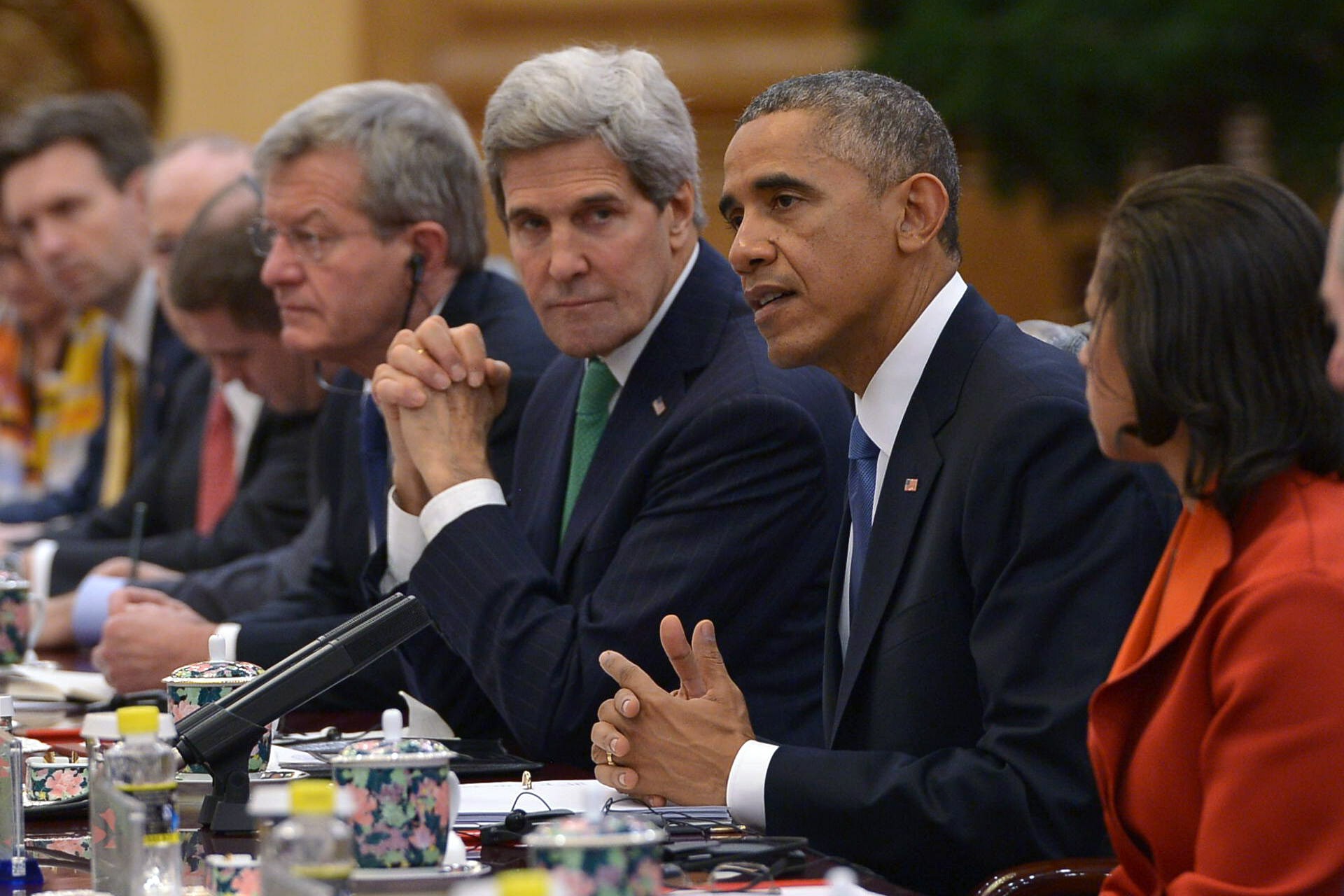Is the Iran nuclear deal really about the U.S.-China rivalry?
The agreement is as much about averting economic catastrophe as it is about curbing Iran's nuclear ambitions


A free daily email with the biggest news stories of the day – and the best features from TheWeek.com
You are now subscribed
Your newsletter sign-up was successful
The Iran nuclear deal may not be as much about Iran as it is about China. Really.
President Obama himself gave us the first clue in his big address on the virtues of the agreement, which curbs Tehran's nuclear program in exchange for the loosening of sanctions. The other world powers were already ready to walk away from the tight sanctions regime we had imposed on Iran. If America didn't reach a deal, and tried to maintain unilateral sanctions on our own, Obama said, "we'd have to cut off countries like China from the American financial system. And since they happen to be major purchasers of our debt, such actions could trigger severe disruptions in our own economy, and, by the way, raise questions internationally about the dollar's role as the world's reserve currency."
This is no throwaway line. On the surface, the Western financial establishment derides the doomsayers who warn that the dollar's dominance is dwindling. But the U.S. has also been scrambling to stave off China's inexorable push for a rival world currency regime. This year, China's new international investment bank drew in U.S. allies despite begging and pleading from the White House. Observers proclaimed disaster. This "may be remembered as the moment the United States lost its role as the underwriter of the global economic system," lamented Larry Summers. "I can think of no event since Bretton Woods comparable to the combination of China's effort to establish a major new institution and the failure of the U.S. to persuade dozens of its traditional allies, starting with Britain, to stay out of it."
The Week
Escape your echo chamber. Get the facts behind the news, plus analysis from multiple perspectives.

Sign up for The Week's Free Newsletters
From our morning news briefing to a weekly Good News Newsletter, get the best of The Week delivered directly to your inbox.
From our morning news briefing to a weekly Good News Newsletter, get the best of The Week delivered directly to your inbox.
From his aggressive push to pass the Trans-Pacific Partnership to his attempt to pivot our military strategy toward Asia, President Obama has placed China's financial rivalry high atop his list of worries. He must be taken at his word that the Iran deal is part of the same policy.
But it's not only about China. The Iran deal reveals just how much the U.S. has to give up to maintain the dominance of dollar-denominated investment and trade. Propping up the so-called "petrodollar" had already become a tenuous exercise, with Tehran's biggest trading partners losing patience over their inability to access Iranian oil.
Look at India. Its sanctions workaround — buying barrels with gold — ginned up a nightmare currency scenario that U.S. diplomats had to strain to shut down (and in the end, only by forcing Iran not to accept gold as payment for oil). Now, White House Press Secretary Josh Earnest has made it plain that voting down the deal would only isolate the U.S. from a global stampede back into Iranian markets.
"No longer would countries like India, who have been making a substantial sacrifice over the years, have any interest or incentive to continue to enforce those sanction against Iran," he warned. "There's no basis, there's no credible claim for why they would be willing to do that, and there's no denying the significant negative impact on the U.S.'s credibility for the U.S. to be isolated in this way."
A free daily email with the biggest news stories of the day – and the best features from TheWeek.com
The administration's economic urgency over the deal goes well beyond India, too. Europe, where the weakest Mediterranean members of the EU had relied on substantial Iranian oil imports, has had it with sanctions, too.
Of course, there are big risks in this massive bid to preserve the dollar's dominance. It gives Russia a boost right at the moment that the whole U.S. military wants Obama to know he has underrated Moscow's antagonism. (Just ask the Joint Chiefs, the latest victims of Russian hackers.) It also ensures that at least some significant slice of unfrozen funds will flow toward Iran's own military objectives in the greater Mideast.
But from a suitably cynical perspective, a little more war here or there won't make much difference to the U.S. and the world. The eclipse of the West's dollar-driven economy will. America's leaders know it — and fear it.
James Poulos is a contributing editor at National Affairs and the author of The Art of Being Free, out January 17 from St. Martin's Press. He has written on freedom and the politics of the future for publications ranging from The Federalist to Foreign Policy and from Good to Vice. He fronts the band Night Years in Los Angeles, where he lives with his son.
